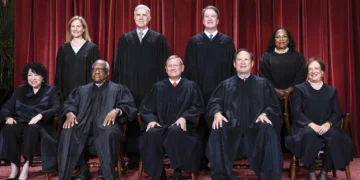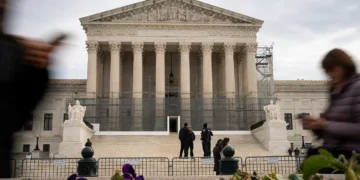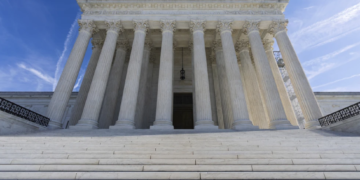Viola Ford Fletcher, left, and Lessie Benningfield Randle at the Oklahoma Capitol in October.Doug Hoke / USA Today Network
Jul 3, 2024 Story by: Editor
OKLAHOMA CITY — The last two remaining survivors of the 1921 Tulsa Race Massacre have asked the Oklahoma Supreme Court to revisit the case dismissed last month, urging the Biden administration to assist in their pursuit of justice.
Viola Fletcher, 110, and Lessie Benningfield Randle, 109, are the final known survivors of one of the most violent attacks against Black people in U.S. history. During the massacre, up to 300 Black individuals were killed, over 1,200 homes, businesses, schools, and churches were destroyed, and thousands were detained in internment camps overseen by the National Guard as a white mob, some deputized by authorities, ravaged the Greenwood District, known as Black Wall Street.
In their petition for rehearing, Fletcher and Randle requested the court reconsider its 8-1 decision that upheld a district court judge’s ruling to dismiss the case.
“Oklahoma, and the United States of America, have failed its Black citizens,” stated the women through McKenzie Haynes, a member of their legal team. “With our own eyes, and burned deeply into our memories, we watched white Americans destroy, kill, and loot.”
They continued, “Despite these obvious crimes against humanity, not one indictment was issued, most insurance claims remain unpaid or were paid for only pennies on the dollar, and Black Tulsans were forced to leave their homes and live in fear.”
Attorney Damario Solomon Simmons called on the U.S. Department of Justice to investigate the massacre under the Emmett Till Unsolved Civil Rights Crime Act of 2007. This act allows for reopening cold cases of violent crimes against Black people committed before 1970. A DOJ spokesperson declined to comment.
The lawsuit aimed to use Oklahoma’s public nuisance law to compel the city of Tulsa and others to make restitution for the devastation. The attorneys also argued that Tulsa exploited the historical significance of Black Wall Street for financial and reputational gain. They believe any revenue the city earns from promoting Greenwood or Black Wall Street, including from the Greenwood Rising History Center, should be placed in a compensation fund for victims and their descendants. Source: Washington Post
















